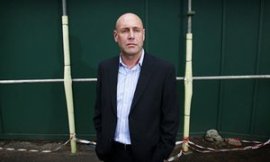
It in Construction industry
 Construction business whistleblower, Alan Wainwright. Photo: Christopher Thomond
Construction business whistleblower, Alan Wainwright. Photo: Christopher Thomond
Alan Wainwright is a whistleblower just who seems to have had a significant turn in switching federal government plan. The one-time building supervisor used their interior knowledge to reveal the clandestine use by organizations of blacklisting who has avoided trade unionists and alleged "troublemakers" getting jobs.
By going community, he set off a string of activities which resulted, on Monday, in a statement through the company assistant, Lord Mandelson, that government ended up being eventually likely to outlaw covert blacklists. Mandelson have been obligated to act after a watchdog shut down an exclusive detective presumably in the middle of blacklisting when you look at the building business. Wainwright played a vital part in helping to unmask the investigator, who is considering be prosecuted for breaking the info defense act on 27 May. Recently he is pleased, but keen to worry that other individuals, including trade unionists and politicians, deserve the credit also.
He has trodden the familiar road of a whistleblower – fighting for a long period in obscurity while being dismissed by those in energy: "it had been demoralising not to ever be thought." Like many whistleblowers, he experienced for going public – dropping his task, having no earnings, using up all his cost savings to call home, experiencing plenty of tension, and fearing he'd be evicted from his house: "It impacts your relationship together with your children, who're what is important in my life."
Industrial strife
Wainwright, 45, spent my youth in Deeside, north Wales. He started out as an electrician then ran a recruitment company before being recruited by the Tarmac construction firm.
His whistleblowing story starts in 1997 as he had been the national labour supervisor at a manufacturing organization, Crown home (after that a Tarmac subsidiary). He previously been told by a senior manager that building companies paid a private detective, Ian Kerr, for information to "ensure that particular employees failed to gain employment on the tasks". He had been told to generally meet Kerr since the vetting was being extended to Crown House's labour force.
"He [Kerr] undoubtedly made it clear that they were unwelcome those who had a brief history of causing disruption to projects, " Wainwright claims.
He'd two meetings with Kerr, who said that many building businesses provided him with details of employees on his database. For instance, Wainwright was shown a list of significantly more than 100 names. In accordance with Wainwright, Kerr said that whenever some one sent applications for work, the business would forward their particular title to him so he could check always their database. Wainwright said that if a member of staff had been declined, an easy "no" would keep coming back, without any other explanation.
Wainwright's department faxed a weekly range of names to Kerr; later on the listings decided to go to Tarmac's hq: "It was extremely discreet, a closely guarded secret. It had been clarified to me that I became never to talk about it with anyone, and I also didn't." However, some thing ended up being stirring in his mind's eye: "we knew deep-down there was something very wrong along with it."
Yesterday, Laing O'Rourke, which today owns Crown House, said that in recent years it had purchased organizations which had paid Kerr, but this was indeed stopped. In 2000, Wainwright briefly worked for the Drake and Scull construction firm. He stated their supervisors delivered him a listing of 500 workers, with their nationwide insurance figures, which it had gotten from competing building firm Balfour Beatty. He said the detailed workers have been used on three large building tasks that had seen most industrial strife, and therefore the list was distributed to managers assure some workers were not used. The memo, dated August 2000, recommended him to "keep these records confidential".
The Emcor building organization, which has Drake and Scull, said it had been conscious of the list described by Wainwright: "we've utilized individuals named on that record, during the time and consequently. We try not to condone blacklists."
By 2004, Wainwright was a supervisor for Haden younger, a subsidiary of Balfour Beatty. Within annually, he found what he thought was fraud by staff members, but states his employers weren't interested in discovering the facts – a claim they deny. "The administration shunned myself, " he says. "It reached the point where we believed very separated, alone and alienated. It absolutely was very upsetting times of my life." He initiated a grievance issue contrary to the organization, but begun to worry he himself would be labeled a troublemaker.
In a page to their hq in July 2005, he blogged: "the business operates a blacklisting procedure for new recruits and hired temporary company employees to check for any earlier history of union militancy, troublemaking."
Copies of Haden Young faxes from the time program lists of brands being faxed to hq making sure that, he feels, they may be vetted.
Yesterday Balfour Beatty said it did "not condone the utilization of 'blacklists' in every circumstances and has taken tips to make sure that not one of your companies make use of such services." In 2006, Wainwright stop Haden younger but lost a jobs tribunal claim. He had been by then believing that he had been blacklisted while he had applied unsuccessfully for longer than 150 jobs. He believed he previously which will make a concerted effort to expose the blacklisting if he were ever going for work. He put up a web page and uploaded names of a huge selection of workers he believed had been blacklisted to notify all of them.
Unfair dismissal
He linked up with workers just who thought these people were becoming blacklisted, shared his inside information with them and offered evidence for all of them in manufacturing tribunals. Three workers won their situation in 2007 for unfair dismissal whenever a tribunal determined that a "disgraceful" blacklist performed occur in building business. A Guardian article from the cases final Summer caught the attention for the Suggestions Commissioner, Richard Thomas, the official privacy watchdog. He investigated because he was worried that workers were unfairly becoming denied jobs. As Wainwright had satisfied Kerr whilst still being had documents regarding the alleged blacklisting, he had been capable help him. Investigators raided Haden Young premises and tracked down the elusive Kerr to a nondescript workplace in Droitwich, Worcestershire. In February, they raided Kerr's premises and seized a secret database of 3, 200 employees, efficiently completing the 66-year-old's company.
Thomas then named 40 building organizations including Balfour Beatty, Sir Robert McAlpine, Laing O'Rourke, Emcor and Crown home, which he stated was in fact clandestinely using the database to veterinarian possible workers. Relating to Thomas, the firms purchased details of the individuals' trade union activities and work record from Kerr. Employees had been said to be branded, for example, as "Communist celebration", "lazy and a trouble-stirrer", "never touch" and "Irish ex-army bad egg". Among the list of entries had been one on Wainwright tracking just how he'd assisted blacklisted workers.
Today the jovial Wainwright is gladly out of the building business and working for a concert ticket company.
He's animated about that are the best causes – the directors for the building businesses. "Ian Kerr is not the main reason for this. The companies set him up in business, financed his existence from the start, and each name regarding number would have been given by the firms. The directors took the choices to participate the machine."
He is not prepared celebrate the end of blacklisting however as he is waiting to see if Mandelson handles to-draw up an effective legislation to eradicate it. "i'm cautiously optimistic, however, " he says.

















